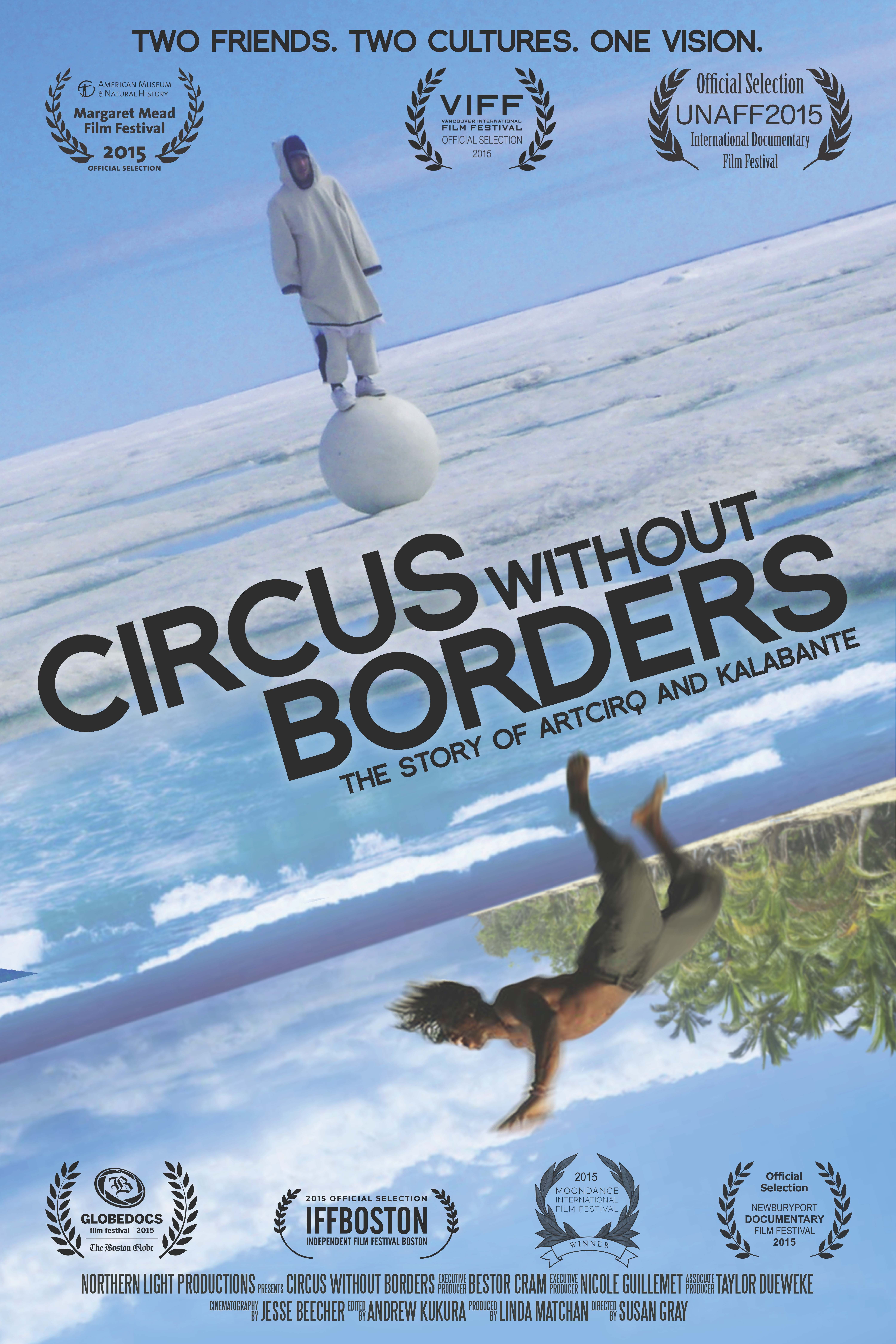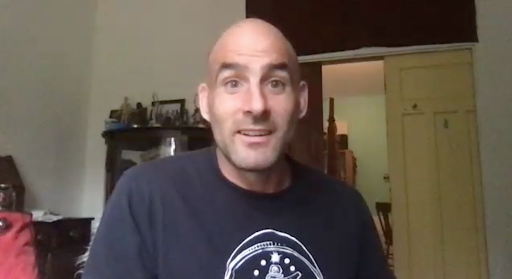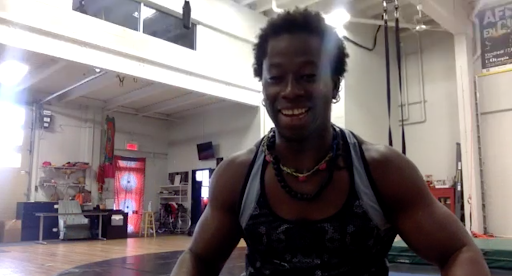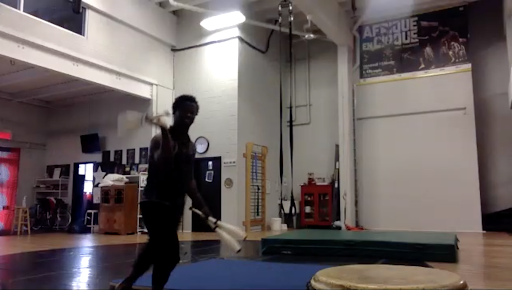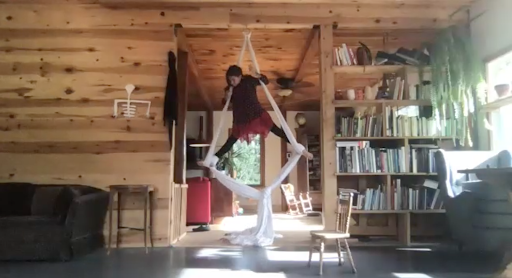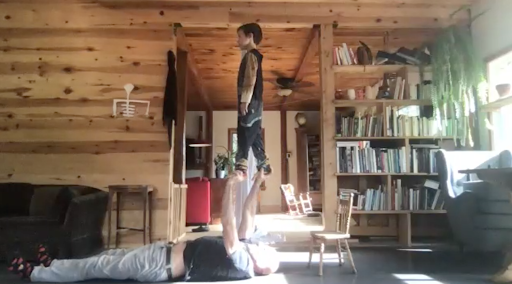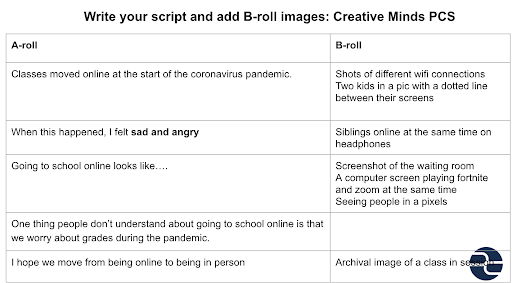This fall, in the midst of an unusual academic year, over two hundred students in Washington, D.C. were still able to explore filmmaking and circus arts through virtual field trips with “Circus Without Borders,” a Pulitzer Center-supported documentary directed by Susan Gray, and produced by Linda Matchan.
A project that spanned seven years, “Circus Without Borders” introduces viewers to the lives and communities of Guillaume Saladin and Yamoussa Bangoura, best friends and world-class acrobats. From Artcirq in the Canadian Arctic to Circus Kalabanté in Guinea, West Africa, the film follows Saladin and Bangoura helping Inuit and Guinean youth achieve success while confronting suicide, poverty, and despair.
The Pulitzer Center education team hosted several virtual visits for Washington, D.C. students to facilitate engagement with the film. Students and their teachers learned about the components of producing and directing a documentary film from Gray and Matchan. Students also had a chance to interact directly with Saladin and Bangoura to learn about circus and the power of art to creatively tell stories. Students connected with the themes of the film and brainstormed how to plan their own films about issues and stories they experience in their daily lives.
“Today's virtual field trip and movie screening was exciting and meaningful,” wrote Creative Minds PCS Middle School director, Lorna Dill, in a follow-up email.
“Thank you again for such an incredible opportunity to connect with the great resources from the Pulitzer Center, but also to connect live with Susan and Linda,” wrote Carolyn Kouri, Dean of Culture at Alice Deal Middle School. “We are so grateful for you all to take time out of your week to plan and facilitate such a great program.”
The first phase of these virtual visits began with a pre-screening of the film—led by Pulitzer Center Associate Director of Education, Fareed Mostoufi—where students and educators from different D.C. schools were introduced to “Circus Without Borders” for the first time. Classes that participated in the pre-screening visit had a chance to learn about filmmaking terminology such as A-roll and B-roll, and practiced identifying establishing shots, action shots, and archival footage. Students also took time to brainstorm questions for Saladin, Bangoura, Gray, and Matchan, in preparation for a full screening of the film and Q&A session.
All participating schools joined together for the longer field trip screening in mid-October, where students were able to watch the film in its entirety, enjoy a special performance by Saladin and Bangoura, and participate in the Q&A with Saladin, Bangoura, Gray, and Matchan. Due to the coronavirus pandemic, students were unable to gather physically for the screening and performances; however, Saladin and Bangoura made a special effort to make their virtual performances as engaging as possible.
The “Circus Without Borders” program concluded with post-screening workshops for each of the schools, which were led again by the Pulitzer Center education team, Susan Gray, and Linda Matchan. Students used this time to share reflections on the content and themes of the film that resonated with them, and then worked with Gray with Matchan to practice planning how to make their own films.
The education team gathered a few reflections shared by students in the live-chats from the field trip and workshops, as well as from post-webinar evaluations:
“I feel like the way they feel about acrobatics is the same way some people may feel about other sports like basketball or dance. Some people rely on that to get through.”
“I learned the ability of performing arts to bridge people from diverse backgrounds, promoting mutual respect and understanding.”
“The collaboration of countries involved young people by engaging them where they are; their cultures were mutually respectful to each other. That alone is a gateway to learning about oneself and exploring your respective role in the universe.”
“I appreciated hearing the panelists' thoughts and perspectives about storytelling and identity (e.g. who has the right to tell another person's or community's story? How do we —as individuals and members of communities—name and claim our own identities? How do we forge relationships of trust and collaboration with people whose identities and lived experiences differ from ours?). I would have loved to hear more!”
One student, Mia, even shared a poem she wrote for Guillaume and Yamoussa, titled “As I Grow Up.”
“In and out of my brain / Acrobatics / As I grow up in these conditions that say I should be ashamed / In and out of my brain / The Circus / As I grow up in these conditions they call a game / Our names you may not know / But you will when we do our show / Today is a blessing / Tomorrow is not promised / Yamoussa and Guillaume / United, we are awesome!”
This project was supported by a generous grant from the D.C. Commission on the Arts and Humanities, which receives support from the National Endowment for the Arts. It was also supported by the DC Arts and Humanities Education Collaborative.
To bring "Circus Without Borders" to your classroom, check out our Lesson Builder or email [email protected].
